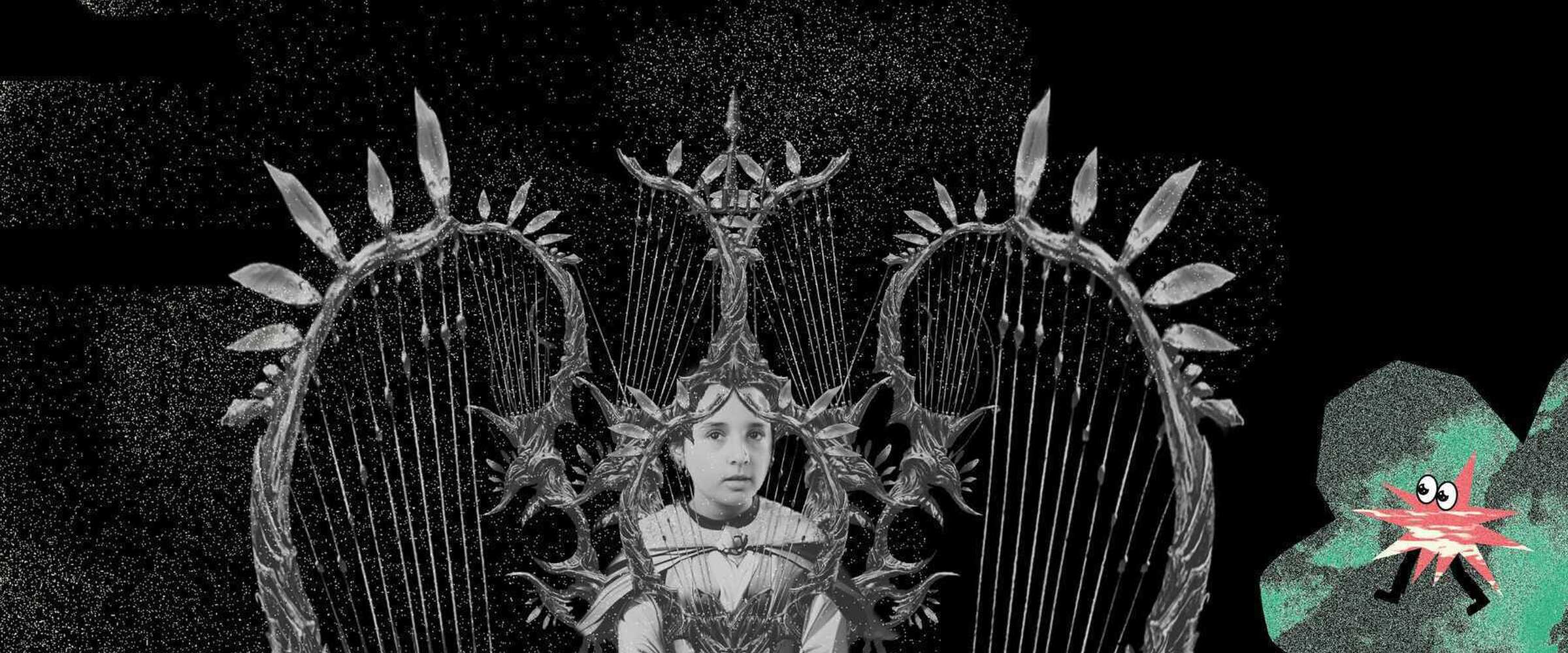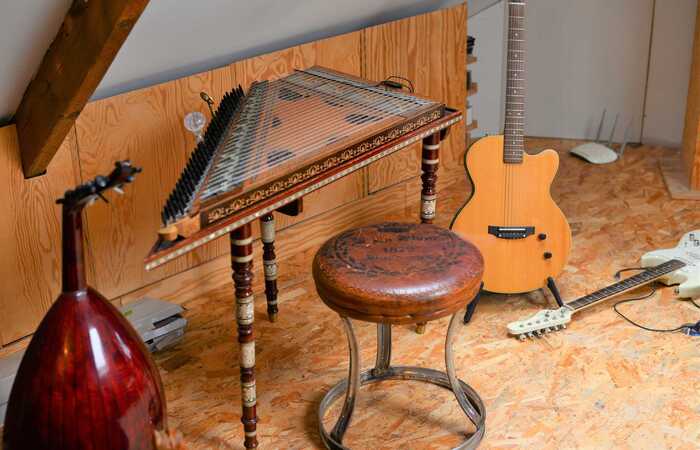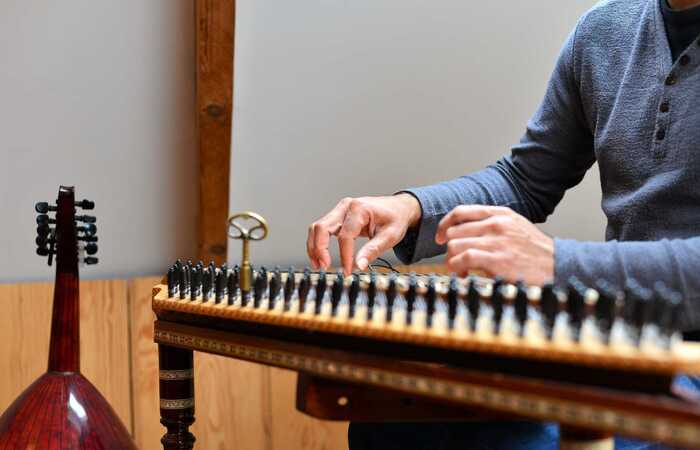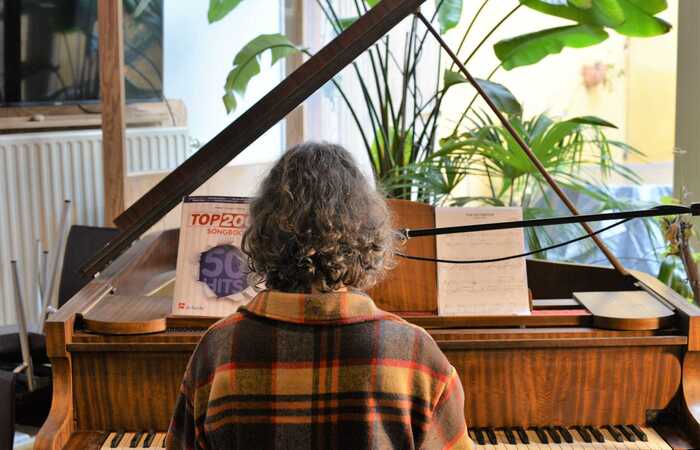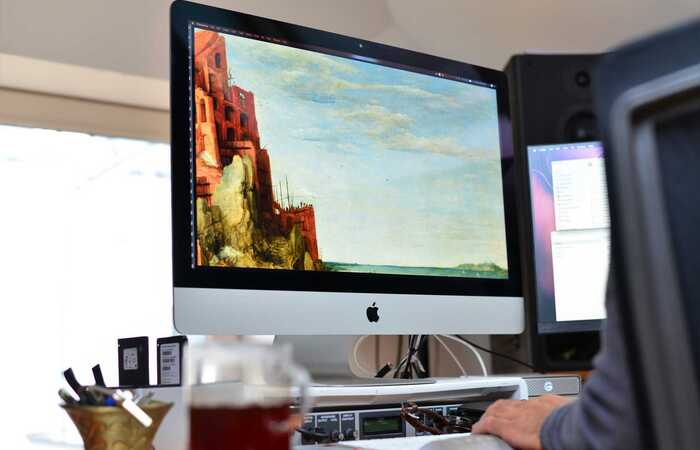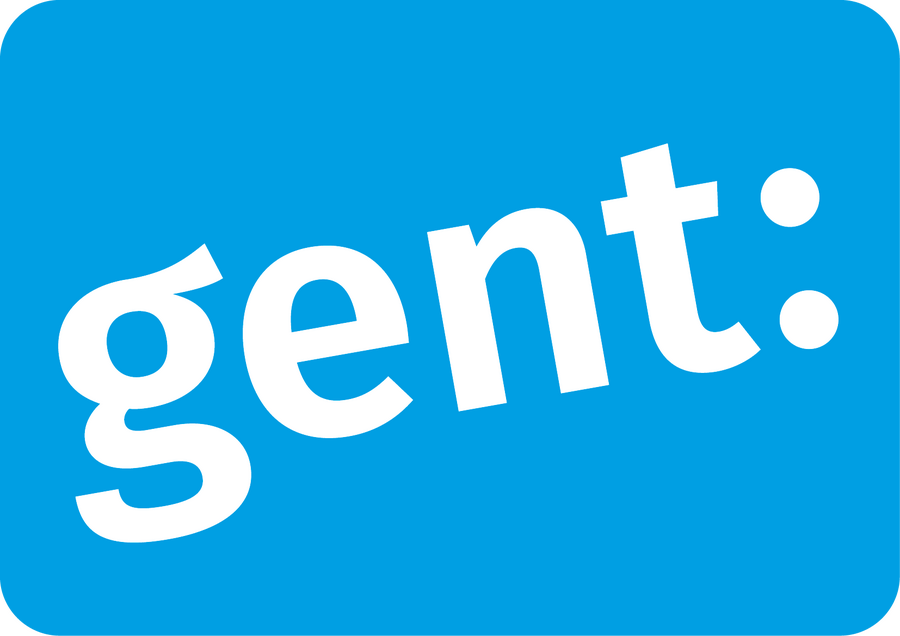The largest Ghent language pool? You'll find it at De Mozaiëk elementary school. When all the children speak their mother tongue, as many as 50 different languages can be heard on the playground. From Bulgarian to Twi, from Arabic to Polish. Hilde De Clercq and Osama Abdulrasol went to the Ghent Tower of Babel and show in their new performance "Bablief?" (6+) how frustrating it is not to understand each other. But also how beautiful and connecting gestures, images and music can be.
An interview by Magali Degrande with darboeka player Hilde De Clercq, teacher Beatrice Fernandez and some of the children involved.
"Do you understand me? It must be just about the most frequently used phrase at The Mosaic. Teacher Beatirce Fernandez waits patiently until she is sure she has all her students with her. 'I especially notice that everyone's trajectory to learn Dutch is different. A little boy who stays here for three years while his father works on an engineering project is going to have a different attitude toward Dutch than a child who has fled and has no idea if he will ever return to the country of birth.
Young children also have it a little easier. A child aged 10-11 is already starting to worry about his or her image and for that reason is more afraid of making mistakes. On the other hand, there are also children who do not speak much on their own (yet), but already understand a lot. Those moments of silence can also be worth a lot.'

Hilde De Clercq, who as a professional darboeka performer herself often comes into contact with other cultures, previously created the youth performance "Tulip Tells" (2017), also with Osama Abdulrasol. In it, a girl disappears into a typical Turkish flower tulip.
Hilde: "When we played a school performance, and there were quite a few Turkish students in the audience, they spontaneously started singing along to a Turkish song, so loudly that we didn't have to do anything ourselves for a moment. Osama and I really sat there with tears in our eyes.'
We quickly abandoned the real story of the Tower of Babel. "Bablief?" for us is about meeting each other and communicating.
Hilde De Clercq
'Can you hear me, there in that tower?
'But because Ghent is so much more than just Turkish, we opened it up for this performance. Osama was born in Babylon in Iraq, and then of course the Tower of Babel is not far away. How you deal with that enormous multilingualism and all the speech confusion that comes with it; that's what we wanted to talk about.
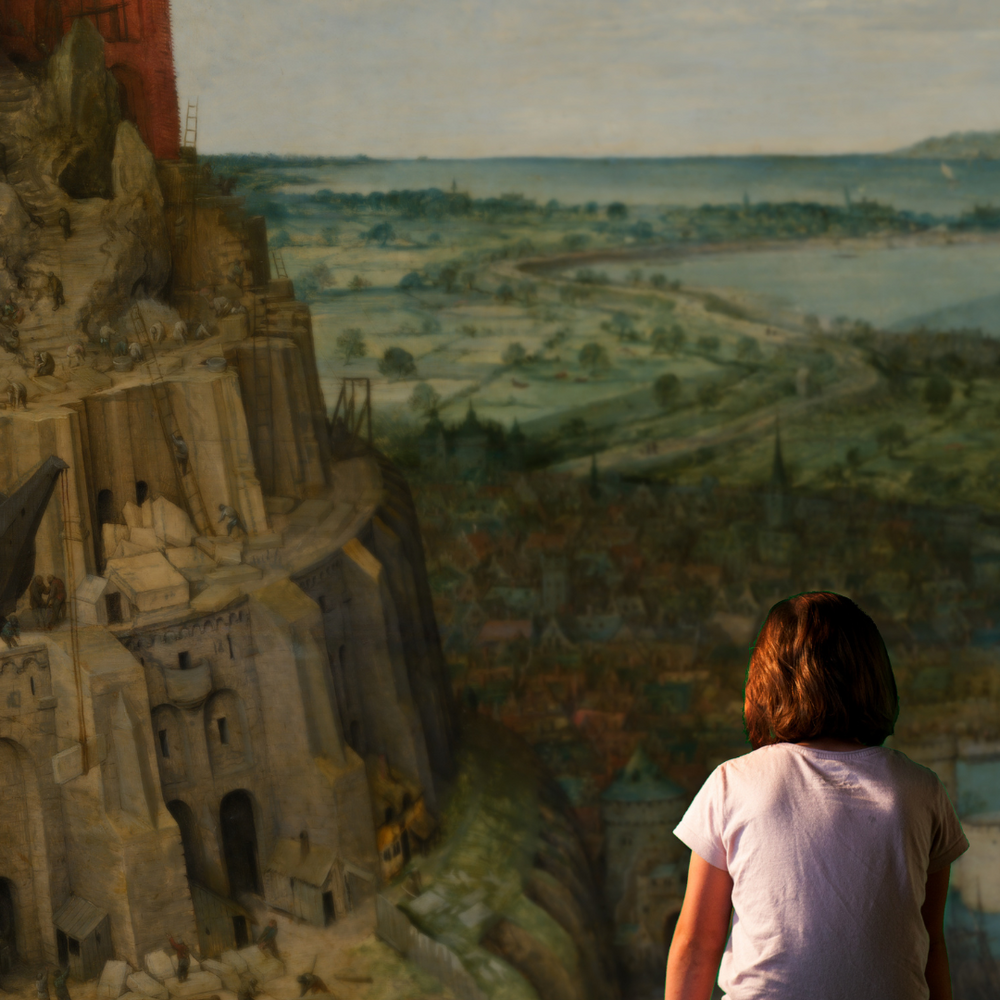
With my darboeka, I sometimes visit schools for music lessons, and so we wrote to a few schools to participate. We also knew that the school had to become more than an inspiration for us.
We actively involved fifteen students from The Mosaic, came to give theater workshops there in January, and will project images we made of the students then during our performance. In those projections, the children also each play a role.'
Ice creams are yukkie in all languages
'When we got the question, we grabbed the opportunity with both hands,' says Teacher Bea. 'We have really seen our children grow during the theater workshops. For example, Sebastian, a little boy from Mexico who is very quiet and dreamy in class, really came into his own on stage. Also because he was just allowed to speak in Spanish.'
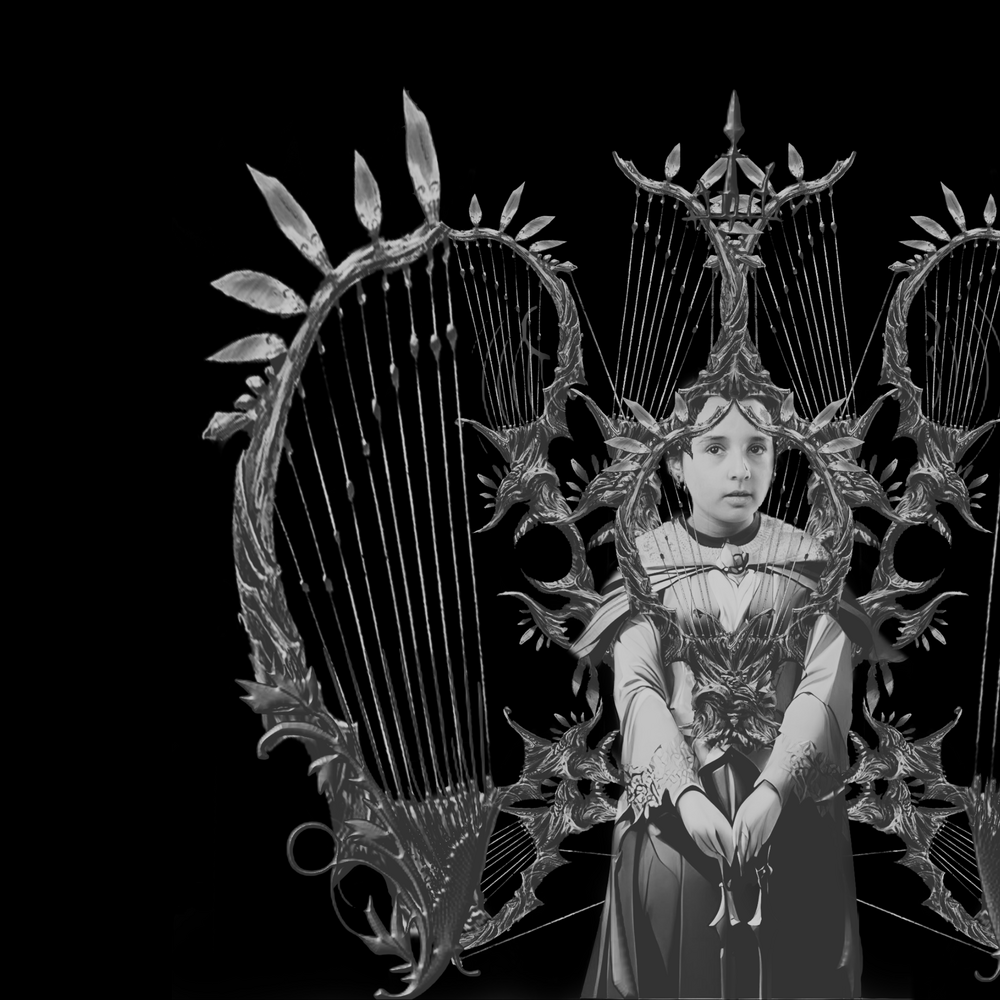
Sebastian: 'I remember we had to imagine all kinds of feelings. I was good at that. 'And I had to learn to conduct,' Alex from Turkey concurs. 'The most fun was when we had to stand on a block and we were allowed to call out in our own language what food we liked and what we didn't like. I said that I don't like ice cream," says Patrick from Poland.
The fifteen children each have their own memories of the workshops. But if you ask them, they start singing spontaneously. As if they literally found a common language in music.
It has become a kind of Alice in Wonderland adventure, in which the rich Iraqi storytelling culture is also never far away.
Hilde De Clercq
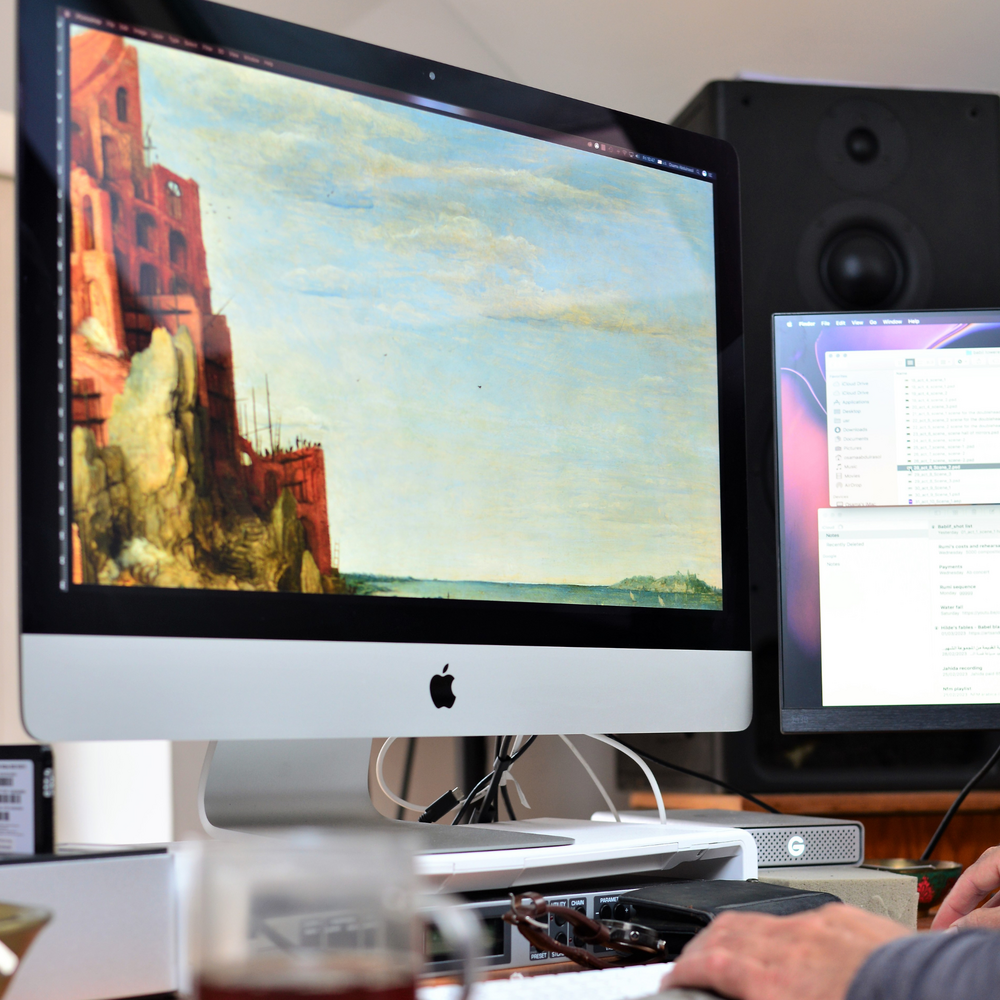
Hilde: "We quickly abandoned the real story of the Tower of Babel. For us, "Bablief?" is about meeting each other and communicating. When we did the exercise of explaining directions to each other, but everyone had to do it in their own home language, there was a lot of laughter.
This is reflected in the performance: protagonist Jasmin arrives at the gate of a tower with lots of different rooms. To everyone who crosses her path, she asks where her little brother could be, but no one speaks the same language as she does, so she has to go back to the next room to try again in a different way.
It has become a kind of Alice in Wonderland adventure, in which the rich Iraqi storytelling culture is also never far away. When Osama tells a story, there is always a frame story in it somewhere. Even his own migration story he has had to simplify a bit so as not to overwhelm the Migration Department too much (laughs).
Bea: "I especially hope that no matter where the kids are, they can share their successes and progress with this play. I am so proud of them! Hopefully their parents will come along too and they can see for themselves, that the enjoyment they got from this performance is beyond any school language class. It was an untranslatable and priceless experience.
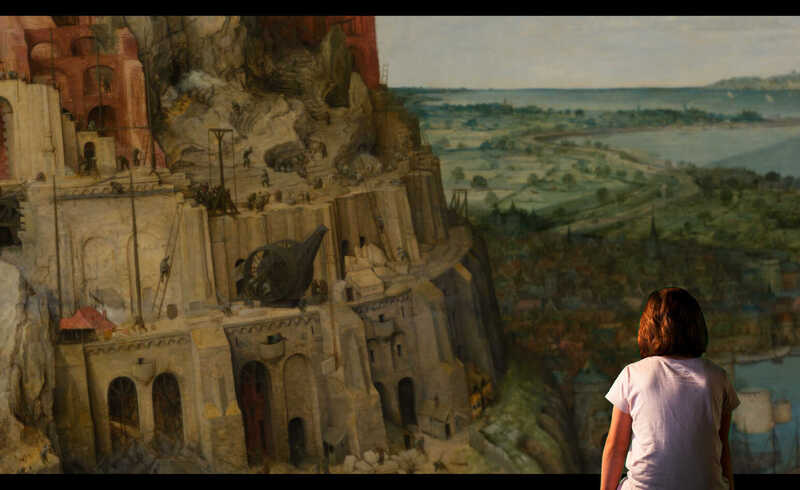
Bablief? (6+)
On a quest in a language labyrinth
15:00 Tickets